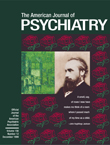Salt Dancers
Just a year after the publication of Stones From the River(1), a superb historical novel on a grand scale, Ursula Hegi published Salt Dancers. This slim volume, the story of one woman’s quest for the truth about her past, does not disappoint. It too is compelling, written in rich prose, never wordy, with vivid descriptions of landscape, places, and people. The dialogue sounds natural and credible, each character having an individual voice. The mastery of language, including the current idiom, is a remarkable accomplishment, particularly for an author who lived in Germany until she came to the United States at the age of 18.
Salt Dancers is written in the voice of the protagonist, Julia. Having fled her father’s home in the Northwest to attend college in the Northeast, she has never returned until, pregnant for the first time at age 41, she feels driven to revisit the home of her childhood and youth to reconstruct and make peace with her past before the birth of her child. Weaving between present and past, among experiences, thoughts, fantasies, and dreams—as happens in a person’s mind—Julia tells about herself and the important events and people in her life. Clarity is never sacrificed to these shifts, making it possible to follow the story line and the development of characters without distraction by technical gymnastics.
Although the novel is biographical, about the arrests and developments in Julia’s life, the theme with variations throughout the book is memory: memory kept at bay or even blotted out or banished; memory lost; memory retained, at times embellished, fused, or confused with fantasy; memory sought, retrieved, or regained; and, finally, memory revised, corrected, and integrated.
Hegi’s novel in no way requires a clinical interest for appreciation, but it struck me as having particular relevance in view of the current controversies, with their oversimplifying polarizations, surrounding recovery of previously unrecalled memories of early childhood trauma. Hegi is not an “expert,” but her novel sensitively and credibly describes the complex ways, influenced by many developmental, personality, and situational factors, in which people deal with their realities as well as their memories of them. Julia, the most fully explored character, struggling against her own resistance to remember fully and correctly, finds that many of her painful memories are indeed correct, but that others have been modified or forgotten. Happier memories also suffer from adaptive distortions: for instance, to escape the emotional complexity of ambivalence, Julia’s memory had attributed all warm and caring parental interaction to her lost, loved, and idealized mother and not to her frequently abusive father.
As I tried to sort out that which had happened from that which could have happened, I was lured into a maze of memories that tricks us with distorted reflections of what we commit to its safekeeping; and what we wrest from it changes each time we hold it against the light, depending on the slant of the light and its intensity. And so we embellish our stories. Protect ourselves with gaps. And take all that for truth. All of it.
As she fills out the events of her childhood, sometimes needing the recall of friends and family, she learns that many warm, sustaining memories actually pertain to her father. His love for her, it turns out, though often selfish, inappropriate, and frightening, was also warm, forgiving, and steadfast: it had been easier and safer to fully hate and repudiate him than also to love him. Julia’s emergence into more mature self-acceptance and ability to commit herself accompanies her developing ability to feel both the good and the bad about each of her parents.
Ultimately, Julia sorts out a great deal of what happened from what did not, but even then the book satisfies by not ending with overly neat resolutions. I recommend this book for the wisdom and the pleasures it offers.
1. Hegi U: Stones From the River. New York, Charles Scribner’s Sons, 1994Google Scholar



